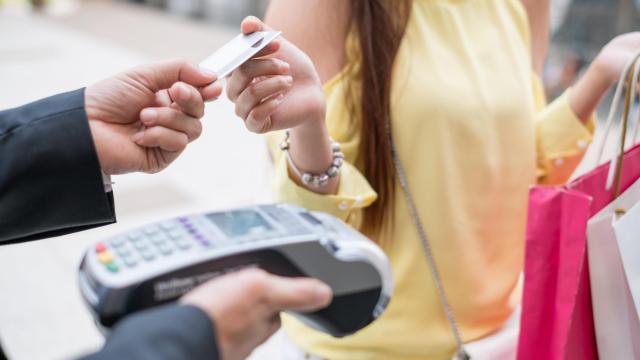While most people associate credit cards with temptation and overspending, a new study offers evidence that your brain provides a reward sensation that’s much more active when purchasing with plastic compared to cash. In fact, the study findings reveal that regular purchases with credit cards actually encourage spending, and it’s all the more reason to reexamine our own credit card habits.
Blame our weak, Pavlovian brains
Participants in the study had their brains scanned while they were shown dozens of everyday products and were asked whether they would buy each product at the stated price, using their own actual money, either in the form of cash or credit cards. The results were consistent with other empirical studies that have shown that people are more willing to purchase higher-price items with plastic rather than cash.
While by no means definitive (the sample size is small and unvaried, and the amounts were limited to $US50 ($64)), the study’s findings confirmed the hypothesis that the brain learns to anticipate the pleasures of credit-card shopping after repeated credit-card purchases over time (in the study’s own unique wording, we’re “chronically sensitised by prior experience with credit cards”).
This lines up with other studies, which have revealed that dopamine pleasure comes from anticipation of the reward, not just the actual reward.
Interestingly, the study also indicates that reward anticipation increased when participants were exposed to buying cues, such as Visa and Mastercard logos, which, as the WSJ suggests, has implications for digital spending:
That suggests that consumers could be conditioned to spend through the use of various sensory rewards in new payment systems… For instance, with digital payments the use of particular sounds or vibrations on your smartphone when you make certain purchases but not others could, over time, teach your brain to anticipate rewards for buying specific products while you’re shopping.
How to make credit card purchases less rewarding
It’s not always easy to resist an impulse purchase, but awareness of your spending habits will go a long way. If you have a set pattern in the way you make purchases, try to break up that routine for a while and see if it has any effect. Some suggestions include:
- Institute a blanket 24-hour rule on potential discretionary purchases (I swear by this rule, personally — it mostly works).
- Removing auto-saved credit card numbers from your browser. Steps for most browsers can be found here.
- Keep close tabs on your checking account balance, stick to debit cards for discretionary purchases and leave your credit card at home.
- Don’t use apps that gamify spending. The most famous example might be the exploding confetti for each successful trade on the Robinhood (the company recently discontinued this feature).
- And stick to a set budget, but include a fixed amount for discretionary spending (since you’re more likely to follow a realistic budget).

Leave a Reply
You must be logged in to post a comment.